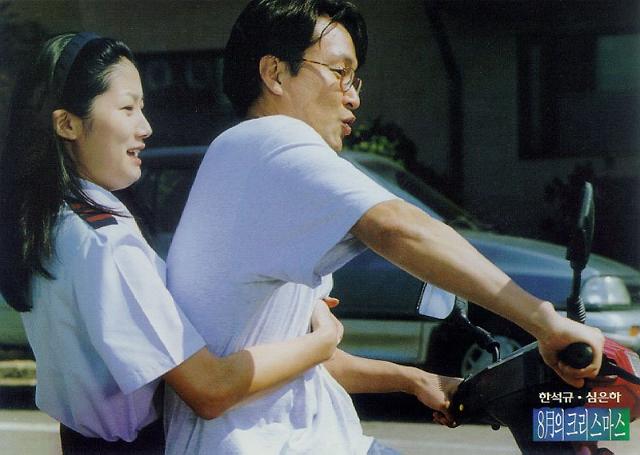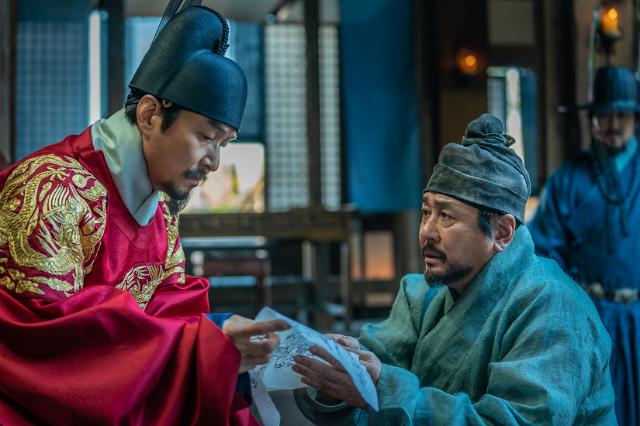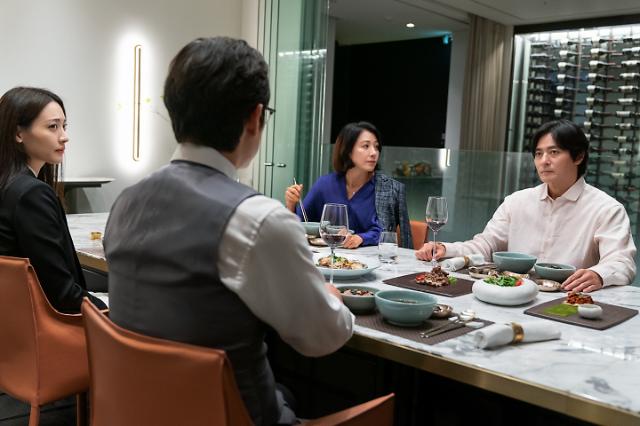130, Suyeonggangbyeon-daero,
Haeundae-gu, Busan, Republic of Korea,
48058
DATABASE
Ko-pick: The Enduring Duo: Director Hur Jin-ho & Composer Cho Sungwoo
- Writerby KoBiz
- View720
Many of Korea’s auteurs have formed long lasting collaborations with music composers. Park Chan-wook frequently works with Cho Young-wuk having partnered together on most of his films since JSA (2000). Kim Jee-woon has teamed up with Mowg on all his projects since I Saw the Devil (2010) and Bong Joon Ho’s forthcoming feature Mickey 17 will mark his third collaboration with Jung Jae-il after Okja (2017) and Parasite (2019).
Similarly, Hur Jin-ho who is revered for his melodramas has worked with music composer Cho Sungwoo for over twenty-five years having first collaborated together in the late 1990s on his seminal film Christmas in August (1998). They would join forces for Hur’s subsequent film One Fine Spring Day (2001) that’s also been influential on Korean melodramas and would continue to combine their talents for Hur’s entire filmography with the exception of A Season of Good Rain (2009).
Cho would also compose the music for several notable films of the late 1990s and early 2000s including E J-Yong’s An Affair (1998) Lee Myung-se’s Nowhere to Hide (1999), Bong Joon Ho’s Barking Dogs Never Bite (2000), Kim Tae-yong and Min Kyu-dong’s Memento Mori (1999) and Yoo Ha’s Marriage is a Crazy Thing (2002).
The composer would remain prolific during the 2000s and although he has been less active in the 2010s and 2020s, Cho has remained an important figure in composing scores with his latest project with Hur Jin-ho, A Normal Family, premiering at the Toronto International Film Festival (TIFF) in 2023 and has since screened at festivals in Europe, North America, and Asia. The film went on local release in Korea on October 16.
To mark its domestic release, this week we will delve into the work produced by this enduring and creative duo starting with Christmas in August before looking at One Fine Spring Day, April Snow (2005), Happiness (2007), The Last Princess (2016), Forbidden Dream (2019) and A Normal Family (2023).

Hur Jin-ho’s feature debut Christmas in August would have an indelible impact on Korean cinema. While melodrama has been evident in Korean films since the colonial period and remained popular in television, the film’s understated approach that is also echoed in Cho’s rich score would lay the groundwork for many melodramas that followed in the 1990s and 2000s.
Han Suk-kyu plays the owner of a photo shop in Seoul who is terminally ill but largely keeps his feelings to himself remaining cheerful for much of the narrative except for moments where his frustrations boil over. He spends more time with a parking attendant (Shim Eun-ha) who comes to the store to get her photos printed but she is unaware of his ailing health. The pair develop a relationship.
In what is a masterful demonstration of “show, don’t tell”, Hur’s direction and writing, the superb leading performances, along with Cho’s affecting yet subtle score; it’s an undeniable classic. This is also demonstrated by the fact that the photo studio where it was shot in the city of Gunsan remains a tourist attraction.

Released more than three years later in time for the Chuseok holiday (Korea’s thanksgiving), Hur Jin-ho’s One Fine Spring Day would further cement the director’s status as a leading Korean filmmaker working primarily within the realm of melodramas. Again, focusing on relationships, wounds and healing, this time it follows a sound engineer (Yoo Ji-tae) and a local radio MC (Lee Young-ae) from the eastern city of Gangneung. They work together to collect sounds of nature and fall in love but as the seasons pass and as past struggles resurface, the connection between the two fractures.
Jo’s piano melodies and his wider score are integral to the film’s critical success as it beautifully and solemnly captures complex emotions that are expertly conveyed by the cast’s layered performances. Like Hur’s work more generally, it relies more on his deft direction and less on histrionics.
Hur worked with Bae Yong-joon on his next feature April Snow (2005) during his peak stardom as one of the early stars of Hallyu generating a huge following in Asia, particularly in Japan. Illustrative of his appeal as a director, Hur has consistently attracted top-tier talent to his projects.
Bae stars alongside Son Ye-jin who would become one of the highest profile stars of her generation as the pair play spouses of those injured in a serious car accident. They discover that the pair were having an affair and as they spend more time together in the hospital and at a nearby motel, they too form a relationship. That is until, one of the spouse’s regains consciousness.
Like Hur’s other work, it’s romantic yet poignant in what is a beautifully crafted drama. The film’s reflective music composed by Cho further elevates the film adding layers to the performances and screenplay. Without it, the film wouldn’t resonate as well as it does.
Terminal illness is a recurrent theme in Korean melodramas, evident not least in Hur’s work with Christmas in August but in the genre more generally (A Moment to Remember). This is on display in Hur’s next film Happiness starring Hwang Jung-min and Lim Soo-jung who play a pair both suffering from severe disease and meet at a rural sanatorium where their health improves significantly. So much so that Hwang’s leading character ponders whether he should move back to the city.
Jo’s score again was instrumental in further enabling audiences to connect emotionally with the film’s touching story, which sold 1.7 million tickets at the box office in the fall of 2007. Except for Christmas in August, Hur’s first half dozen titles were all released in the Autumn (September or October), a popular time for the genre as the Autumnal foliage and dropping temperatures signals the end of summer and the tentpoles.
Hur embarked on a different project in the mid-2010s, his first Korean period film, which followed Dangerous Liaisons (2012), a Chinese-Korean co-production that ultimately failed to reach audiences mustering 200,000 admissions at the local box office. The Last Princess, however, which came almost four years later was a rousing success becoming Hur’s most watched film to date selling over five million tickets in the summer of 2016 fueled by strong word-of-mouth.
Released in a year where there were a number of colonial-era films on the big screen (Love Lies (2016), The Handmaiden (2016), The Age of Shadows (2016)), The Last Princess was able to leave its mark for its compelling portrayal of Joseon Dynasty’s final princess, Deokhye played by a magnificent Son Ye-jin. The princess is forced to move to Japan and the film follows her childhood friend (Park Hae-il), a member of the independence movement as he attempts to bring her back to Korea.
Similarly, less interested in adopting theatrics to drive the story, Hur brings his strong craftmanship to a summer tentpole. While Cho didn’t write the film’s main score, he did compose the song Small White Flower that captures the inner self of the last princess and features during the closing credits of the film. Sung by singer Kim Yoon-ah, it marked a reunion between the two after working together on the title track for One Final Spring Day.

Hur would continue to work in a period setting on his subsequent film Forbidden Dream (2019) reuniting with Han Seok-kyu who plays the much-admired monarch King Sejong known for his keen interest in science and for devising the Hangul alphabet. The film centers on the relationship between the king and the scientist Jang Yeong-sil (Choi Min-sik) who disappeared after he took responsibility for a broken carriage carrying the king. After starring in Swiri (1999) together, the film was also notable for the onscreen reunion of Han Suk-kyu and Choi Min-sik.
Most of Hur’s films focus on relationships between men and women but this is more of a bromance that is not unusual in Korean cinema, especially in mainstream blockbuster fare. But Hur once again adopts his tender touch thereby successfully differentiating it from many other period pieces in what is a genuinely moving portrayal of a friendship.
Cho’s score is fitting for the occasion, heart-warming but also solemn that is emblematic of his music and Hur’s wider work. The film accrued 2 million admissions following its release just after Christmas in 2019.

The director and composer’s most recent collaboration is A Normal Family that has had an unusual journey for a mainstream film having travelled extensively on the festival circuit ahead of its commercial release in Korea. It’s perhaps characteristic of the post-pandemic ecosystem where dozens of titles have had their release schedules pushed back in what remains an unpredictable industry.
Hur’s latest is a thriller-drama based on the 2009 Dutch novel A Dinner by Herman Koch, which sees two families coming together for dinner as they attempt to handle a heinous crime committed by their children. The film stars Sul Kyung-gu, Jang Dong-gun, Kim Hee-ae and Claudia Kim and is produced by Hive Media Corp., known for their hits (Handsome Guys, 12.12: The Day). The company also worked with Hur previously having produced The Last Princess and Forbidden Dream.
Cho performed the score live on the piano to audiences this year at his music concert at the Busan Cinema Center in the summer, which came ahead of its local release. He also performed several of his other scores at concerts featuring music he scored for Hur Jin-ho, Lee Myung-se and E J-Yong.
Written by Jason Bechervaise
Editted by Shim Eunha


























